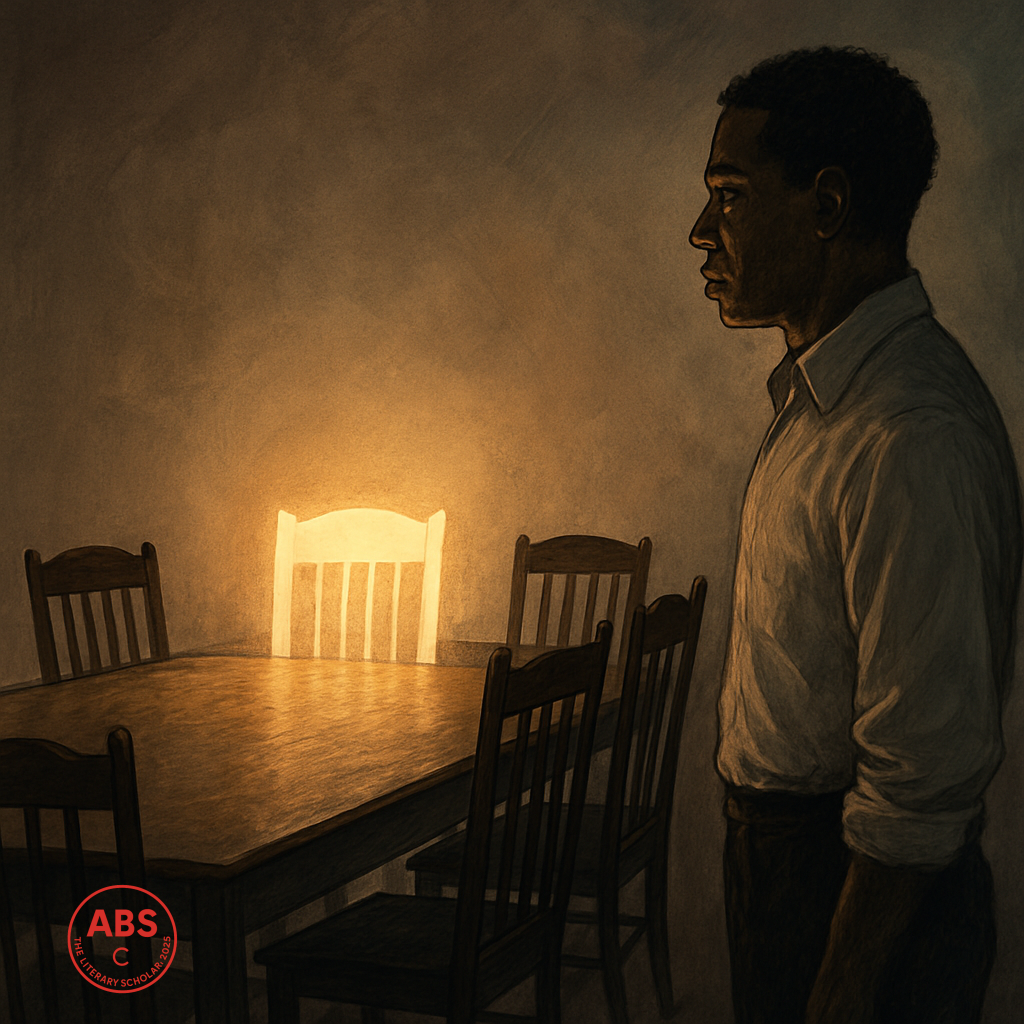I Too by Langston Hughes analysis, A Poem That Doesn’t Shout, Just Smiles and Waits for Justice to Show Up Late
ABS Believes:
Sometimes protest doesn’t roar. It hums in a kitchen, grows in silence, and shows up shining.
Poetic resistance can come in five lines and still steal the scene.
Langston Hughes: The Quiet Thunder of the Harlem Renaissance
Langston Hughes didn’t yell. He spoke. Clearly, rhythmically, undeniably. As one of the towering voices of the Harlem Renaissance, Hughes didn’t just write about Black America—he wrote from it, inside it, with all its pain, music, wit, and unstoppable momentum.
And in I, Too, he gives us a poem so short it barely takes a breath—yet it delivers a cultural clapback that echoes across decades.
I Too by Langston Hughes analysis: Five Stanzas, One Message, Infinite Power
“I, too, sing America.”
It begins softly. But it’s not a whisper—it’s a claim. A declaration. A flag in the soil of poetic democracy.
The “I” here isn’t just one man—it’s every Black voice silenced in the national chorus, now calmly clearing its throat.
“I am the darker brother.
They send me to eat in the kitchen
When company comes…”
Ah, segregation as social choreography. When guests arrive, the “darker brother” is hidden—not because he isn’t family, but because the room pretends he isn’t.
This stanza doesn’t rage—it stings. It’s composed fury. The kind that doesn’t need metaphors because reality has done the work already.
“But I laugh,
And eat well,
And grow strong.”
Now we’re cooking. Literally and metaphorically.
Banished to the kitchen? Fine. That’s where the food is. And the poem lets us feel the quiet power of survival. He doesn’t protest—he prepares. He grows. He bides his time like revolution in slow simmer.
“Tomorrow,
I’ll be at the table
When company comes.”
No force. No threat. Just… inevitability.
It’s not a question. It’s a forecast. Tomorrow, he’ll be at the table—not because he was invited, but because he always belonged there. The future isn’t up for discussion.
“They’ll see how beautiful I am
And be ashamed—”
It’s not revenge. It’s revelation. The shame isn’t screamed. It’s quiet. It arrives when truth walks into the room wearing its own name.
“I, too, am America.”
The final line loops back, but now it echoes.
This isn’t a plea for inclusion. It’s a poetic update to the national identity. The speaker is not waiting for permission. He’s simply finishing the sentence history kept interrupting.
Interpretation: Minimalism with Muscle
I, Too is five stanzas of perfect restraint. It doesn’t perform anger. It dignifies it.
Hughes knew that the most powerful protest is often the one that doesn’t flinch, doesn’t shout, and doesn’t ask twice.
This is poetry that cooks while you look away—and serves justice when the guests least expect it.
Witty Commentary Served Politely
“They send me to eat in the kitchen…”
Translation: You may seat me elsewhere, but I season my own legacy.
“I eat well and grow strong…”
Fuel for the future. Hunger isn’t always weakness—it’s preparation.
“Tomorrow, I’ll be at the table…”
Dinner reservations: inevitable. Dress code: unapologetic.
“They’ll be ashamed…”
Because beauty was there all along—they just wrote the guest list in pencil.
“I, too, am America.”
And there it is—the final line that doesn’t just close the poem, it rewrites the anthem.
Why This Poem Still Hits Home
Because people are still sent to metaphoric kitchens.
Because equality isn’t a favor—it’s overdue.
Because five stanzas can say more than five manifestos.
And because Langston Hughes knew how to turn a whisper into a wake-up call.
The Literary Scholar folds the scroll and sets an extra chair at the table—already knowing it’s been earned, not borrowed.

Signed,
The Literary Scholar
Where identity is not an invitation—it’s a statement in verse
Where silence cooks resistance and tomorrow always shows up
Share this post / Spread the witty word / Let the echo wander / Bookmark the brilliance
